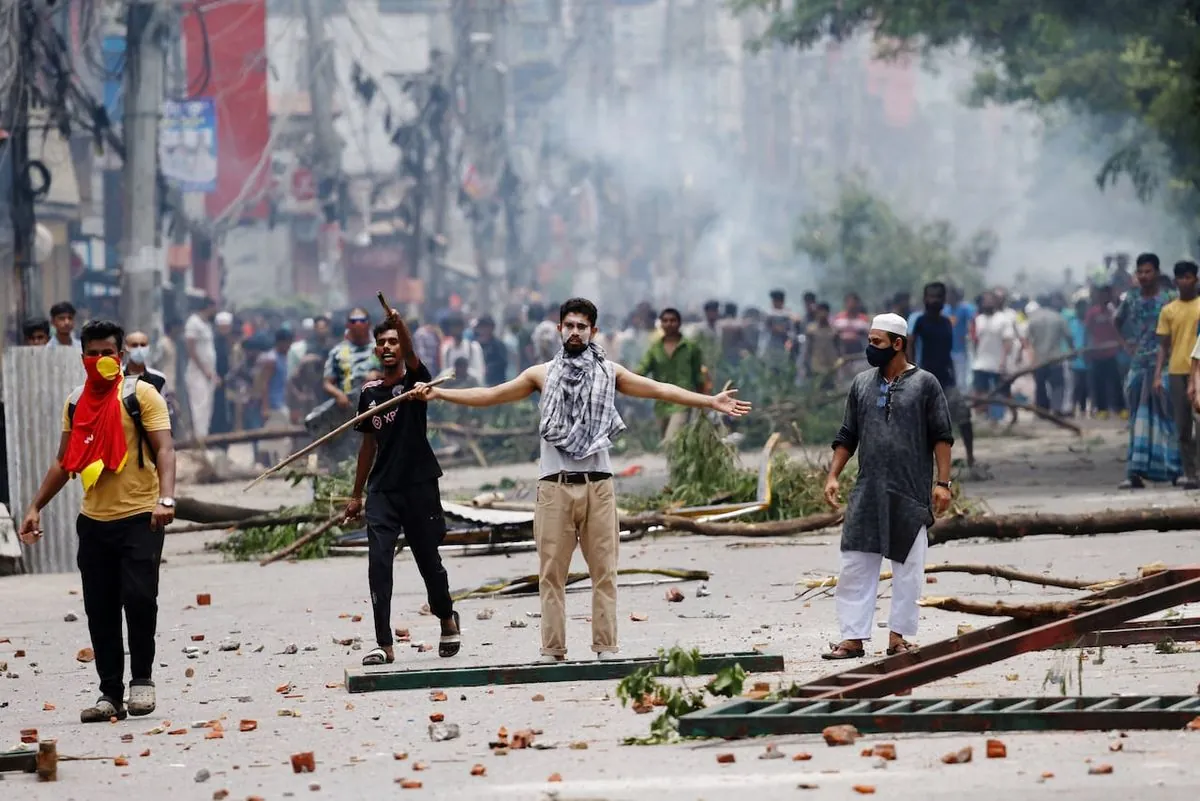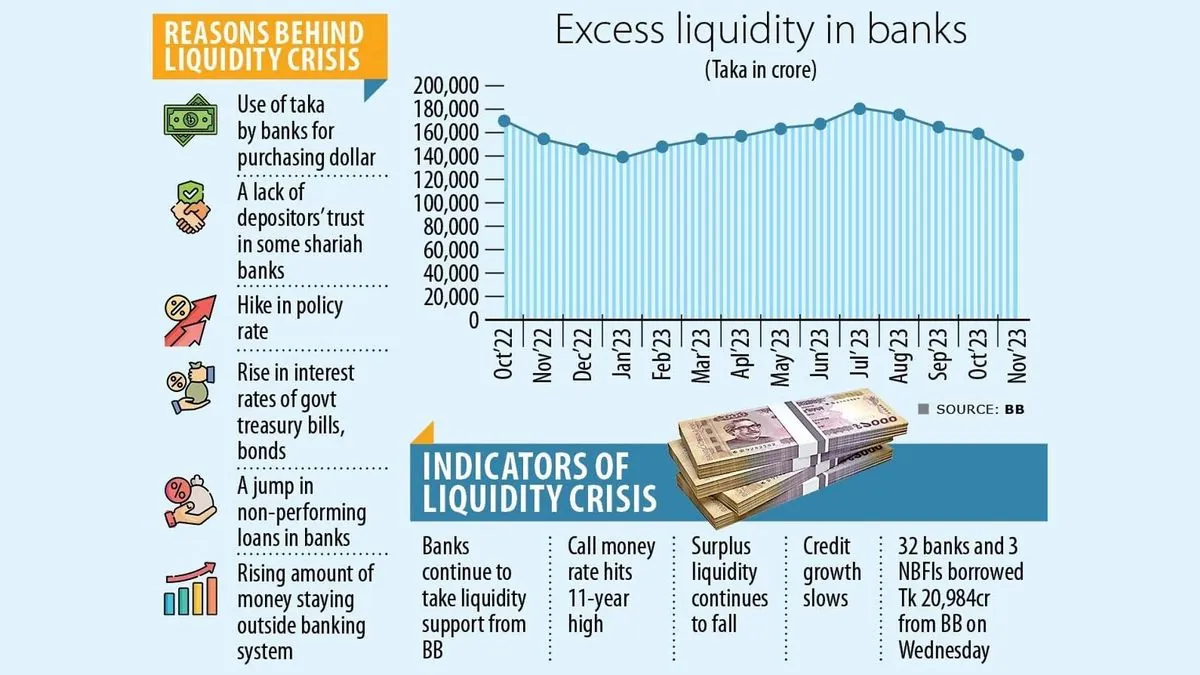Bangladesh's Financial Reforms at Risk Amid Political Upheaval
Political turmoil in Bangladesh threatens financial reforms and weakens the banking sector. S&P Global Ratings warns of policy inaction as the country grapples with leadership changes and economic challenges.

In a significant turn of events, Bangladesh's financial landscape is facing turbulence amidst political unrest. S&P Global Ratings has issued a warning about the potential slowdown in financial reforms and the weakening of the country's banking sector.
The upheaval began when Sheikh Hasina, the Prime Minister, resigned and sought refuge in India approximately a week ago. This decision came in the wake of student-led protests that escalated into widespread violence, resulting in approximately 300 fatalities and thousands of injuries. These protests, which originated from a movement against job quotas in July 2024, have evolved to target officials appointed during Hasina's tenure.
To address the power vacuum, an interim government has been established under the leadership of Muhammad Yunus, a Nobel Prize-winning economist renowned for his work in microfinance. However, the unrest has led to the resignation of key financial figures, including the central bank chief and four deputy governors.
Shinoy Varghese, a credit analyst at S&P Global Ratings, expressed concern about the situation:
"We see risk of policy inaction and a potential slowdown in financial reforms."
The banking industry in Bangladesh is grappling with several challenges, including liquidity shortages, insufficient capital buffers, and deteriorating asset quality. These issues have been exacerbated by the current political climate and the departure of senior central bank officials, potentially delaying ongoing structural reforms.

The economic turmoil has had a significant impact on inflation rates. In July 2024, when the government imposed a nationwide curfew that halted transportation, closed offices, and disrupted the vital garment industry, inflation surged to 11.66% from 9.72% in the previous month.
It's worth noting that Bangladesh, the world's eighth most populous country, has been experiencing rapid economic growth, with an average GDP growth rate of 6-7% annually since 2004. The country is also the second-largest exporter of ready-made garments globally, after China. However, the recent unrest has put this progress at risk.
In response to economic challenges, including youth unemployment and dwindling reserves, Bangladesh sought and received approval for a $4.7 billion bailout from the International Monetary Fund in January 2023. This move was aimed at stabilizing the $450 billion economy, which had previously been one of the world's fastest-growing.
The ongoing situation has prompted Moody's Analytics to revise its GDP growth forecast for Bangladesh in 2024 from 5.4% to 5.1%. The agency emphasized that the country's recovery from its currency crisis is contingent on the ability of any new government to address public concerns and restore social order.
Despite these challenges, it's important to recognize Bangladesh's achievements in recent years. The country has made significant strides in reducing poverty, improving literacy rates, and achieving gender parity in primary and secondary education enrollment. Life expectancy has also increased dramatically, rising from 46.6 years in 1960 to 72.6 years in 2020.
As Bangladesh navigates this period of uncertainty, the international community watches closely, recognizing the country's importance as a major contributor to UN peacekeeping missions and its vulnerability to climate change. The resolution of this crisis will be crucial not only for Bangladesh's economic future but also for its role in the rapidly evolving Asia-Pacific region.


































